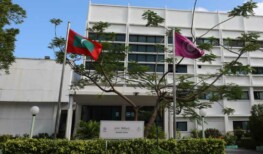Waste Woes in Fuvahmulah: WAMCO Faces Allegations of Burying Waste
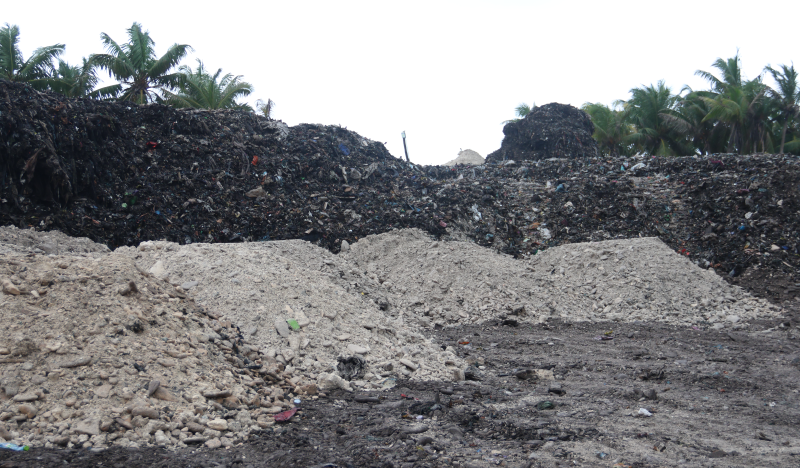
Last Tuesday night at Fuvahmulah City, Maldives Police Service (MPS) and Fuvahmulah City Council attended to complaints regarding excavation and burial of waste at the site operated by Waste Management Corporation Limited (WAMCO).
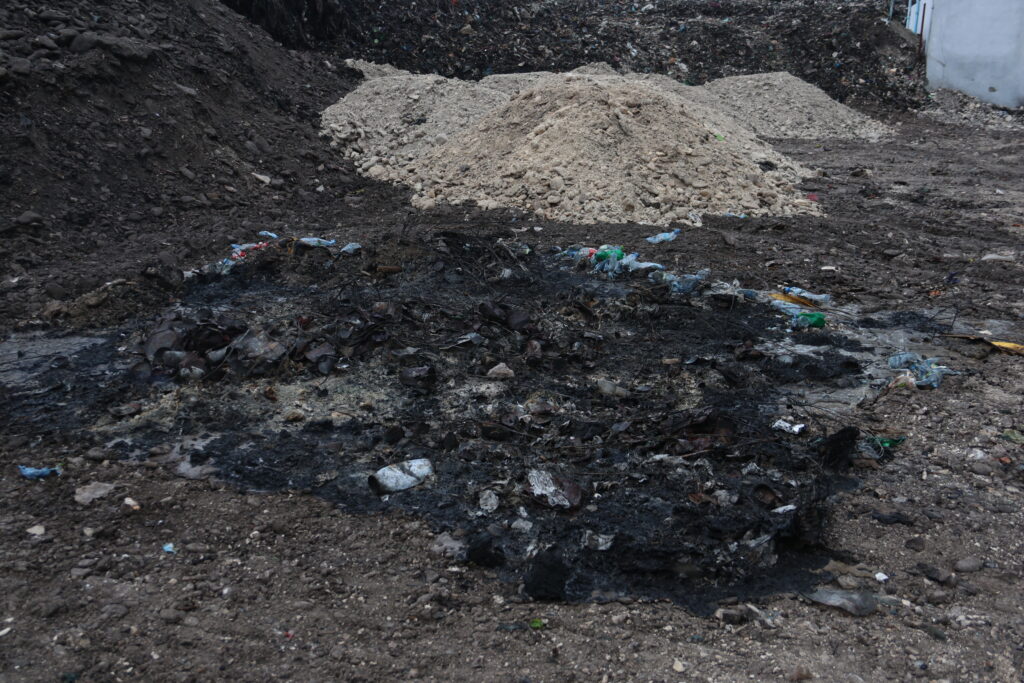
An official from the Police told MV+ that they were attending to claims made on WAMCO workers excavating and selling sand from their site, however, they did not find such activities.
“Police attended the WAMCO area early last night after receiving information that sand was being dug and sold,” the Police official stated.
“No such activities were observed during the police attendance. However, it was noted that excavation and (waste) burial activities had taken place in the area.”
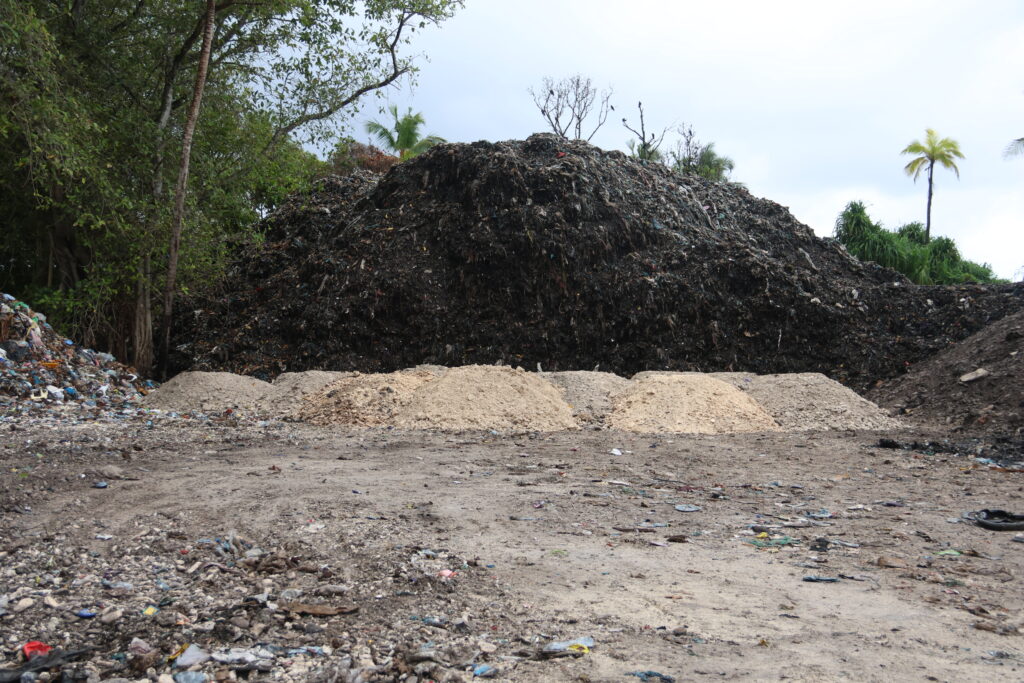
The Police further stated that this information was shared with the Council and instructed to proceed with the matter in conjunction with the relevant authorities.
Environmental Repurcussions
“Burying waste anywhere in the Maldives has severe negative impacts. The most obvious being the contamination of groundwater because of leachate,” said Afrah Ismail, Co-founder of Zero Waste Maldives.
Leachate is a liquid formed as water passes through buried waste.
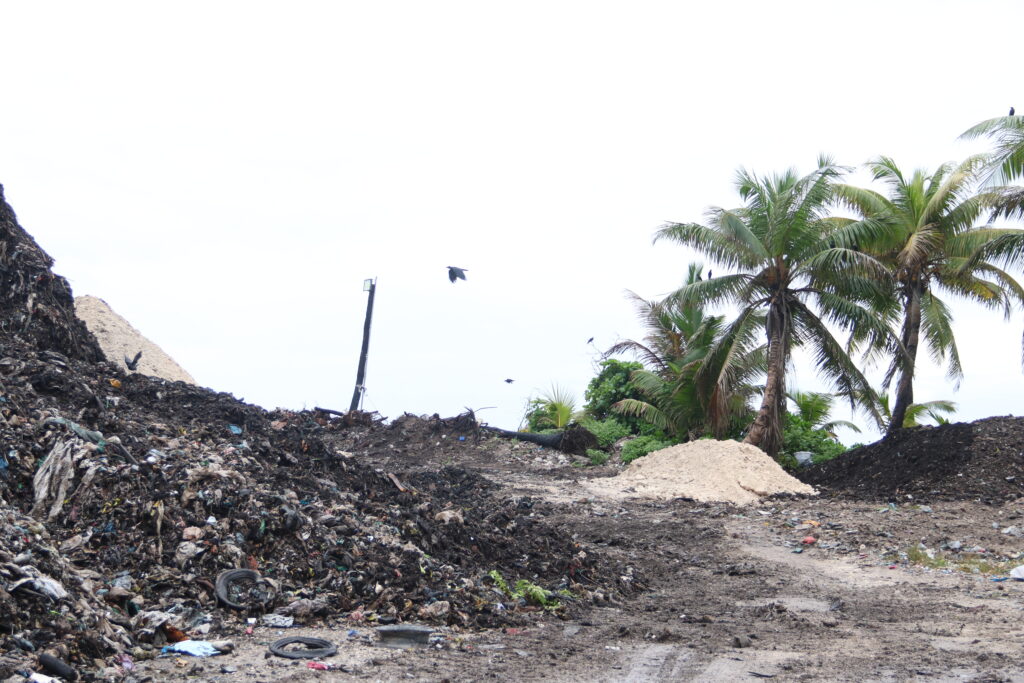
“Similarly toxins and pathogens that exist in the waste can also leach into the groundwater and spread though the water table. This can also contaminate nearby water bodies as well as cause eutrophication due to increased nutrient content in the soil,” Afrah further explained.
Afrah also added that burying soil does not mean that it will “become compost.”
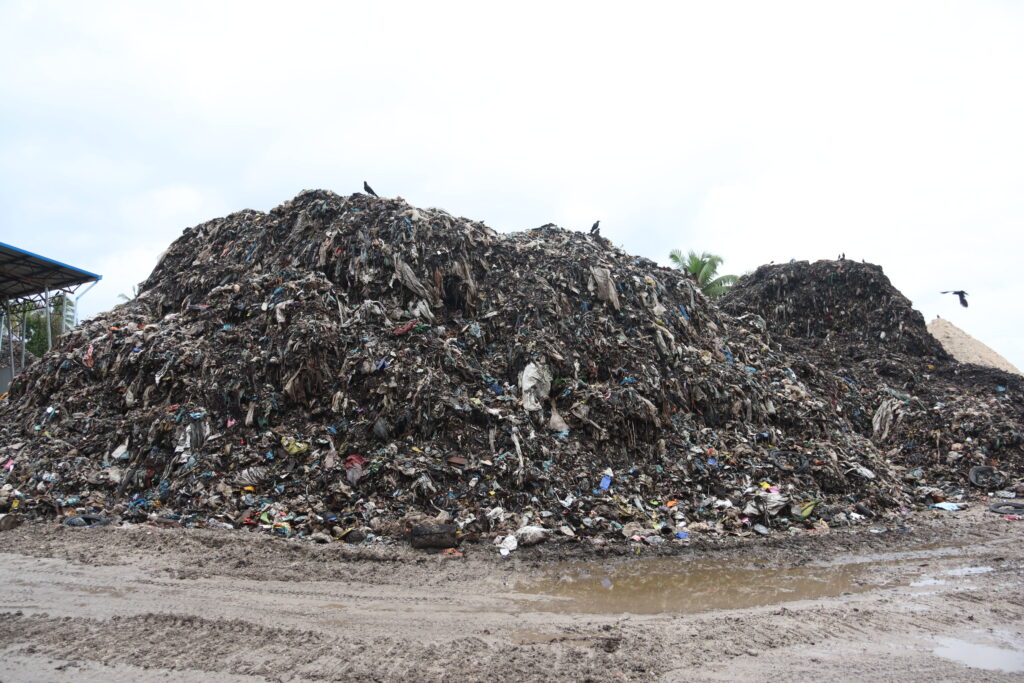
When asked to give a comment on WAMCO’s actions, Afrah said, “highly irresponsible acts such as burying waste in islands is something we do not expect to see from WAMCO at all. As the SOE tasked with waste management across the whole of Maldives we expect them to know and follow the environmental regulations to the letter.”
“We Do Not Bury Waste,” Says WAMCO
When reached for a comment on these allegations, Hisaan, Assistant Manager at WAMCO of Fuvahmulah denied these activities.
“We do not bury waste. Trash piles are placed in a hole (with water) under our firefighting operations, which we take out later. We do not bury trash.”
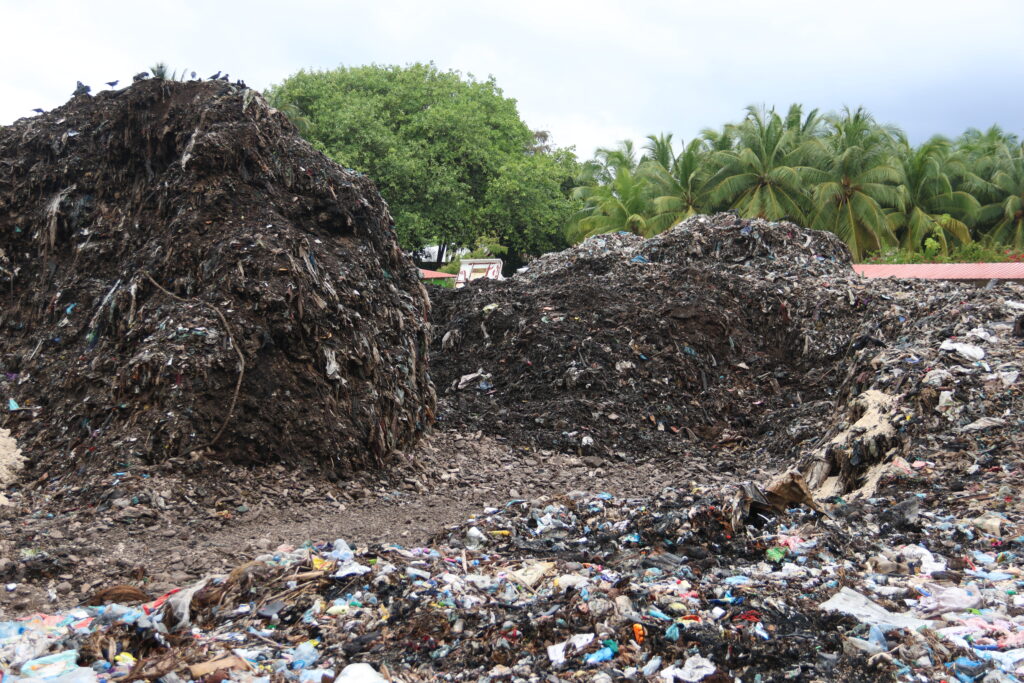
Hisaan further revealed that this practice was also done by MNDF previously to put out the fire at the site, which WAMCO is now continuing after their guidance.
Our source from Fuvahmulah City informed us that a couple of higher-ups at WAMCO are selling this contaminated sand for construction. WAMCO, however, has refuted these claims.
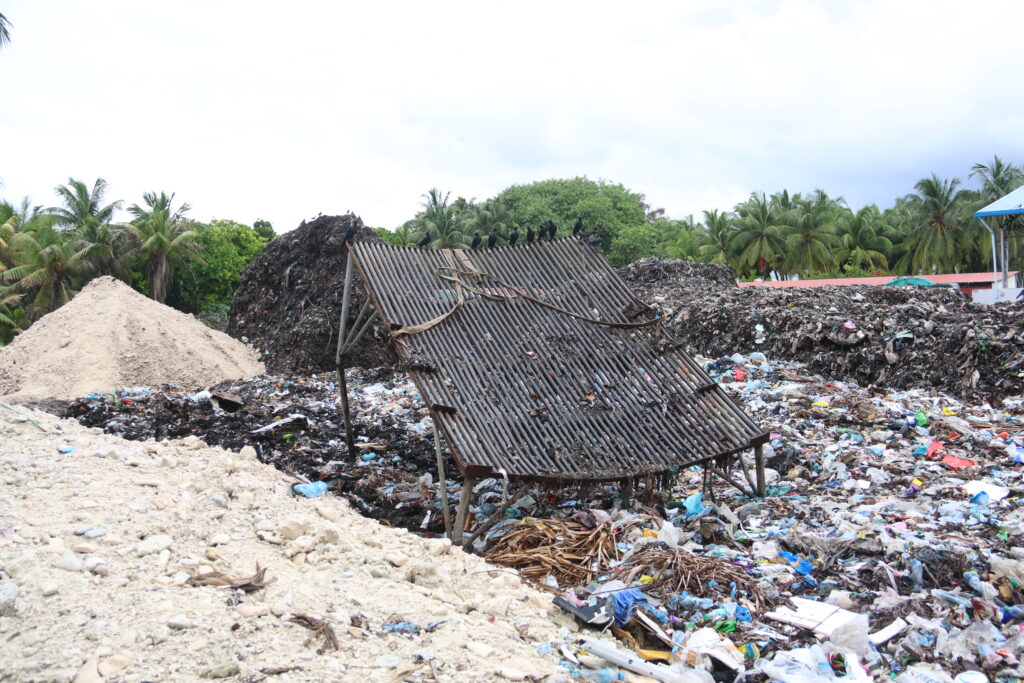
“We have not received any information of such activities. And we do not believe that any staffer would do that,” said Hisaan.
Despite these refutations, the Fuvahmulah City Counil had different take on things.
“There was evidence of extensive excavation and burial of garbage on the site,” said Aslam, Secretary General of Fuvahmulah City Council. “WAMMCO employees also told the council team that the plastic is being burnt.”
When asked if WAMCO buries the waste with sand or if they just leave the waste in holes, the Council had this to say:
“Since that is the area they dump all the waste, they just spread a mixed waste layer on the surface. From our observation, we found this practice throughout the waste management center.”
Is It Legal?
The legality of burying waste is ambiguous, as there are no specific regulations prohibiting burying waste. However, the spirit of environmental regulations outlined in the Act pertaining to waste management, places a significant importance on public health.
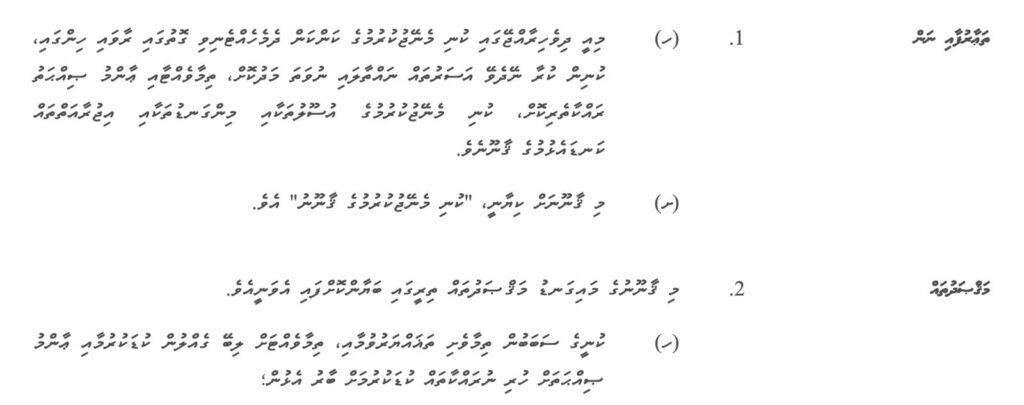
The law lists reducing environmental pollution, reducing environmental damage, and reducing public health risks caused by waste first in its objective. However, the regulation lacks a clear outline of how waste mismanagement affects public health.


The current law also highlights that “landfilling”, described as burying waste in land or ocean, has to be done under the regulation made by the Environment Ministry, which has not been published yet.
Legacy Waste Clean Up
Fuvahmulah City is among the list of islands the previous administration claimed to have completed “Legacy Waste Cleanup”. The project is a key component of the former government’s commitment to addressing the accumulated waste on certain islands, a result of insufficient waste management systems over the years.
While the previous government confirmed the completion of this project in 48 different islands, their claims remain doubtful as some of the islands, including Fuvahmulah, have not rid of their accumulated landfills.
A disconcerting incident has unfolded in Fuvahmulah City, as locals report that a landfill site has been engulfed in flames for nearly a month, with no apparent resolution in sight.
Read more: https://t.co/Wol2PcUnMI pic.twitter.com/qMDGgaUQSN— MV+ (@mvplusmedia) July 19, 2023
Fuvahmulah City’s waste management faced scrutiny earlier this year in July when their landfill site remained ablaze for an extended period, raising concerns about the health of residents and causing environmental degradation to local ecosystems.





